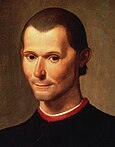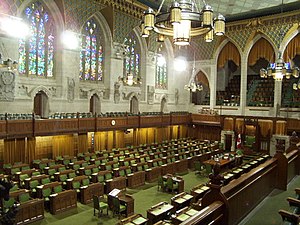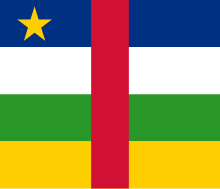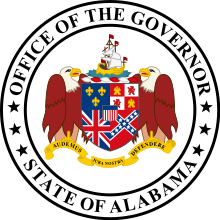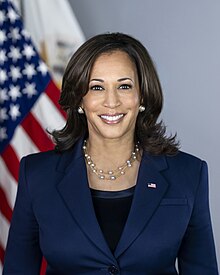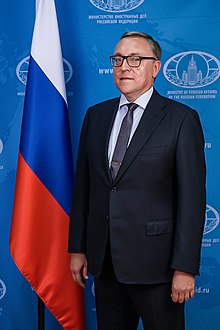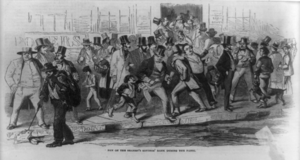Portal:Politics
| Main | Topics and categories | Tasks and projects |
The Politics portal
Politics (from Ancient Greek πολιτικά (politiká) 'affairs of the cities') is the set of activities that are associated with making decisions in groups, or other forms of power relations among individuals, such as the distribution of resources or status. The branch of social science that studies politics and government is referred to as political science.
It may be used positively in the context of a "political solution" which is compromising and non-violent, or descriptively as "the art or science of government", but also often carries a negative connotation. The concept has been defined in various ways, and different approaches have fundamentally differing views on whether it should be used extensively or in a limited way, empirically or normatively, and on whether conflict or co-operation is more essential to it.
A variety of methods are deployed in politics, which include promoting one's own political views among people, negotiation with other political subjects, making laws, and exercising internal and external force, including warfare against adversaries. Politics is exercised on a wide range of social levels, from clans and tribes of traditional societies, through modern local governments, companies and institutions up to sovereign states, to the international level.
In modern nation states, people often form political parties to represent their ideas. Members of a party often agree to take the same position on many issues and agree to support the same changes to law and the same leaders. An election is usually a competition between different parties.
A political system is a framework which defines acceptable political methods within a society. The history of political thought can be traced back to early antiquity, with seminal works such as Plato's Republic, Aristotle's Politics, Confucius's political manuscripts and Chanakya's Arthashastra. (Full article...)
Selected article
Niccolò di Bernardo dei Machiavelli (May 3, 1469 – June 21, 1527) was an Italian diplomat, political philosopher, musician, poet, and playwright. He is a figure of the Italian Renaissance and a central figure of its political component, most widely known for his treatises on realist political theory (The Prince) on the one hand and republicanism (Discourses on Livy) on the other. These two written works, plus his History of Florence commissioned by the Medici family, were published posthumously in 1531. After the ousting and execution of Savonarola, the Great Council elected Machiavelli as the second chancellor of the Republic of Florence in June of 1498.
Featured picture

The resignation letter of U. S. President Richard M. Nixon on August 9, 1974 during the Watergate scandal.
Selected quote
Selected biography
Phạm Ngọc Thảo (1922–1965), a major provincial leader in South Vietnam and infiltrator of the Army of the Republic of Vietnam (ARVN), was a communist agent of the Viet Minh and later the Vietnam People's Army. As the overseer of Ngô Đình Nhu's Strategic Hamlet Program in the early 1960s, he deliberately forced the program forward at unsustainable speeds, constructing poorly equipped and poorly defended villages, in order to foster rural resentment against the regime of President Ngo Dinh Diem, Nhu's elder brother. Thao was posthumously promoted by the ARVN to the rank of one-star general and awarded the title of Heroic war dead (Vietnamese: Liệt sĩ). After the Fall of Saigon and the end of the Vietnam War, the communist government awarded him the same title and paid war pensions to his family, claiming him as one of their own.
Did you know (auto-generated) -

- ... that an excavation for 75 Wall Street revealed an old crock linked with a leader of the Tammany Hall political machine?
- ... that politics in The Simpsons have caused controversy in Argentina, Australia, Brazil, and Japan?
- ... that Sears heiress Edith Rosenwald Stern organized a women's broom brigade against political corruption in New Orleans?
- ... that despite most of the polls and 50 major political writers predicting victory for Thomas E. Dewey, Harry S. Truman won the 1948 presidential election?
- ... that no single political party has a mandate in a coalition government?
- ... that Jonathan Allen left journalism for politics before quitting 40 days later?
More did you know...
- ...that Republican National Committee official Rob Bickhart wrote a PowerPoint presentation for a meeting of Republican fundraisers which depicted Nancy Pelosi as Cruella de Vil?
- ...that following its 1994 national convention, the Progress Party of Norway lost its deputy leader and the four MPs Christiansen, Hillgaar, Wetterstad and Bråthen?
- ...that Democrat Mayor Thomas G. Dunn, national co-chairman of Democrats for Nixon, was "read out of the party" for his support of Republican President Richard Nixon's 1972 re-election bid?
- ...that Nazi scientists claimed to have trained a dog to call "Adolf Hitler" as "Mein Führer"?
- ...that for many years, the Russian Soviet Republic did not have its Communist Party?
- ...that the World War II idea of Polish-Czechoslovakian confederation was eventually discarded by the Czechs, whose leader chose instead to believe in the Soviet Union promises of alliance?
- ...that Nunez Community College in Chalmette, Louisiana, is named for the late wife of former Louisiana State Senate President Samuel B. Nunez, Jr.?
- ...that when the Tennessee Center for Policy Research, a "free-market think tank," criticized Al Gore's energy use, CNN mistakenly called the organization an environmental group?
In this month
- May 5, 2005 – A General Election in the United Kingdom sees Tony Blair's Labour government returned to office with a reduced majority of 66.
- May 14, 1948 – The Declaration of Independence of Israel is made.
- May 18, 1948 – The first Legislative Yuan of the Republic of China officially convenes in Nanking.
News and Current events
- August 11: 4 local government areas in New South Wales, Australia locked down after COVID-19 case
- August 11: Australia: AstraZeneca vaccine access expanded by Victorian government
- August 1: Australia: Victorian lockdown lifted
- July 29: Tunisia's president dismisses prime minister, suspends parliament
- July 25: Australia: Wikinews interviews Reg Kidd, mayor of the City of Orange, about COVID-19 lockdown and local government
- July 23: South Australia enters week-long lockdown to contain COVID-19 Delta variant spread
- July 21: Technological University Dublin senior lecturer Dr Lorcan Sirr speaks to Wikinews on housing market in Ireland
- July 21: Three rural councils in New South Wales, Australia enter 7-day lockdown
- July 21: Australia: Victoria lockdown extended by a week with 85 active cases recorded
- July 15: California governor signs new state budget, eligible Californians to get stimulus payments
Topics and categories
General images
Related portals
Associated Wikimedia
The following Wikimedia Foundation sister projects provide more on this subject:
-
Commons
Free media repository -
Wikibooks
Free textbooks and manuals -
Wikidata
Free knowledge base -
Wikinews
Free-content news -
Wikiquote
Collection of quotations -
Wikisource
Free-content library -
Wikiversity
Free learning tools -
Wiktionary
Dictionary and thesaurus

